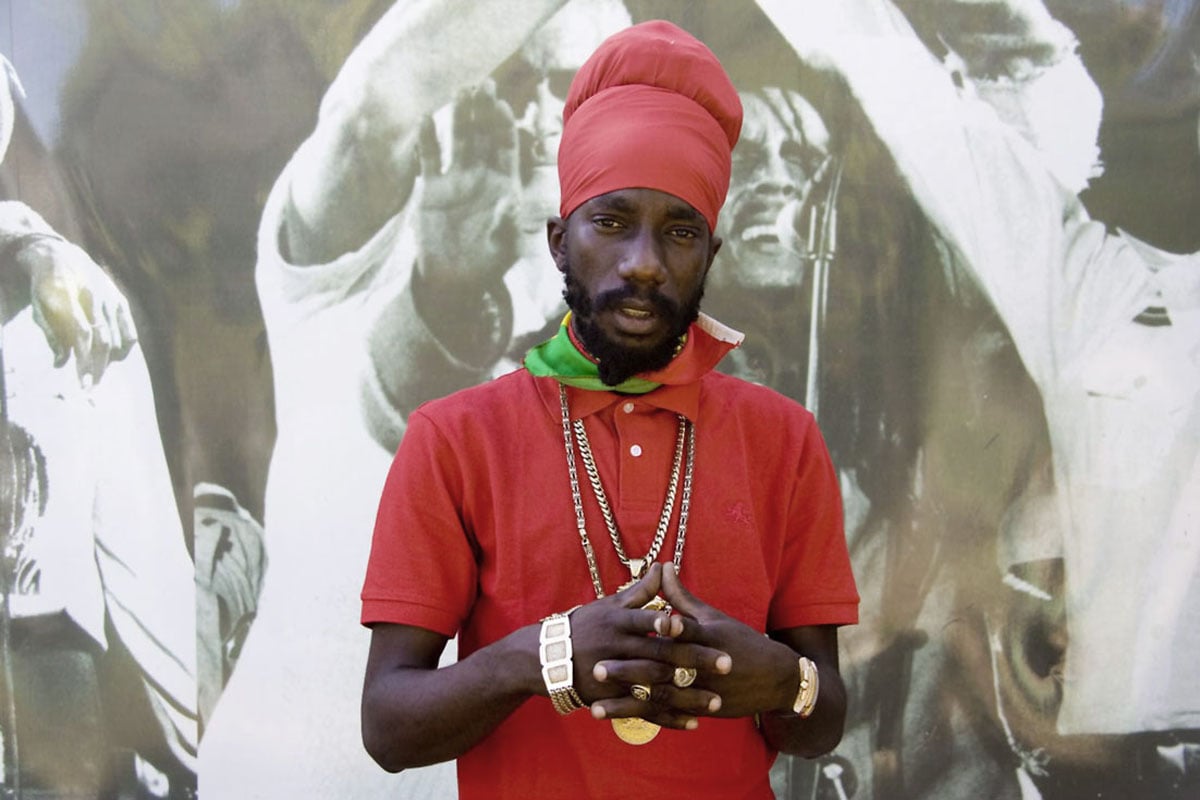‘Record Some Godly Songs Too,’ Sizzla Encourages Young Dancehall Artists To Diversify

Mash Dem Down artist Sizzla Kalonji is encouraging upcoming artists to ensure their catalogue is diverse and not confined to songs which are violent, sexually explicit or otherwise unfit for radio airplay, but instead ensure they also record tracks that are wholesome and family-oriented.
“Di likkle young artiste dem, yow write oonu song. Keep di ting nice; meck some table song that when families gather your songs can play at the gathering; yuh understand?” he said during an Instagram Live session a few days ago.
“Don’t meck just too much gangster song alone, or jus a sing too much girl song alone. No man, meck some praise song too, some culture song,” he added.
Sizzla’s sentiments in relation to gangster songs, were echoed somewhat by Popcaan in April 2019 when the Unruly Boss declared that artists ought to be “working towards making more international music”.
“Man them can always sing them bag a gun song them because it’s a part of the thing, I will still sing them too but don’t expect to see none on the Billboard all young and new artist stay firm on the journey because it’s not easy out here,” the Numbers Don’t Lie artist had said.
Sizzla said within the Jamaican Reggae and Dancehall music culture, it is expected that each artist, matter how much they built their image on violent or raunchy songs, they are expected to do at least one godly song, or the repercussions for them, for being one-dimensional will be dire.
“Meck mi teach oonu aa likkle trick weh Jamaicans nuh tell oonu as a likkle young artiste: it nuh matter how much song yuh sing enuh, if yuh don’t sing a song that is godly or a song that is of Rastafari culture and consciousness, you an di people gonna have a bitter battle. So it nuh matter how much song yuh sing, sing some conscious songs,” he said.
Sizzla’s observations are cemented by the number of artists known for violent lyrics who have voiced songs of praises, among them Vybz Kartel, Bounty Killer, Merciless, Mavado and Jahvillani, to name a few.
The August Town native’s sentiments have long been the subject matter for studies and papers at the University of the West Indies (UWI).
Professor of Culture, Gender, and Society at the UWI, Donna Hope, in her book titled Dancehall: Origins, History, Future, noted that “God” was among the six themes central to Dancehall music, the others being guns, gyals, ghetto, gays and ganja.
Also, at the SALISES 50-50 Conference held at the UWI in August 2012, Anna Kasafi Perkins in her paper titled Throwing Words Across the Fence: Church and Dancehall in the Future of Jamaica, noted that “many persons would find it surprising that ‘God’, representing personal faith, belief in a supernatural being, and ideas about religious sentiments and their impact on life, has a place alongside such matters as violence, raw sex and conspicuous consumption. Yet Dancehall artistes come out of the Jamaican milieu, which is decidedly Christian or Rasta-influenced, with very strong Biblical underpinnings”.
According to her, the Christian/Rasta substratum of Dancehall is evident in myriad references to ‘the Almighty (One)’, ‘Jah’, ‘Jesus’, ‘Faada/Maasa Gad’, ‘Jehovah’ or ‘Selassie’ in many Dancehall songs and among the repertoire of artistes who are neither to be identified as among the ‘conscious’ group nor the Dancehall Gospel crossover group.
“The God/faith theme in Dancehall has three dimensions: 1) profession of personal faith and the desire to live according to that faith, 2) rejection of Christians/Church as fake, hypocritical or not truly living the faith, 3) rejection of Church/Christianity/Christ as false, hopelessly compromised. Atheism or agnosticism does not seem to be strong postures within the Dancehall tradition,” she said.
